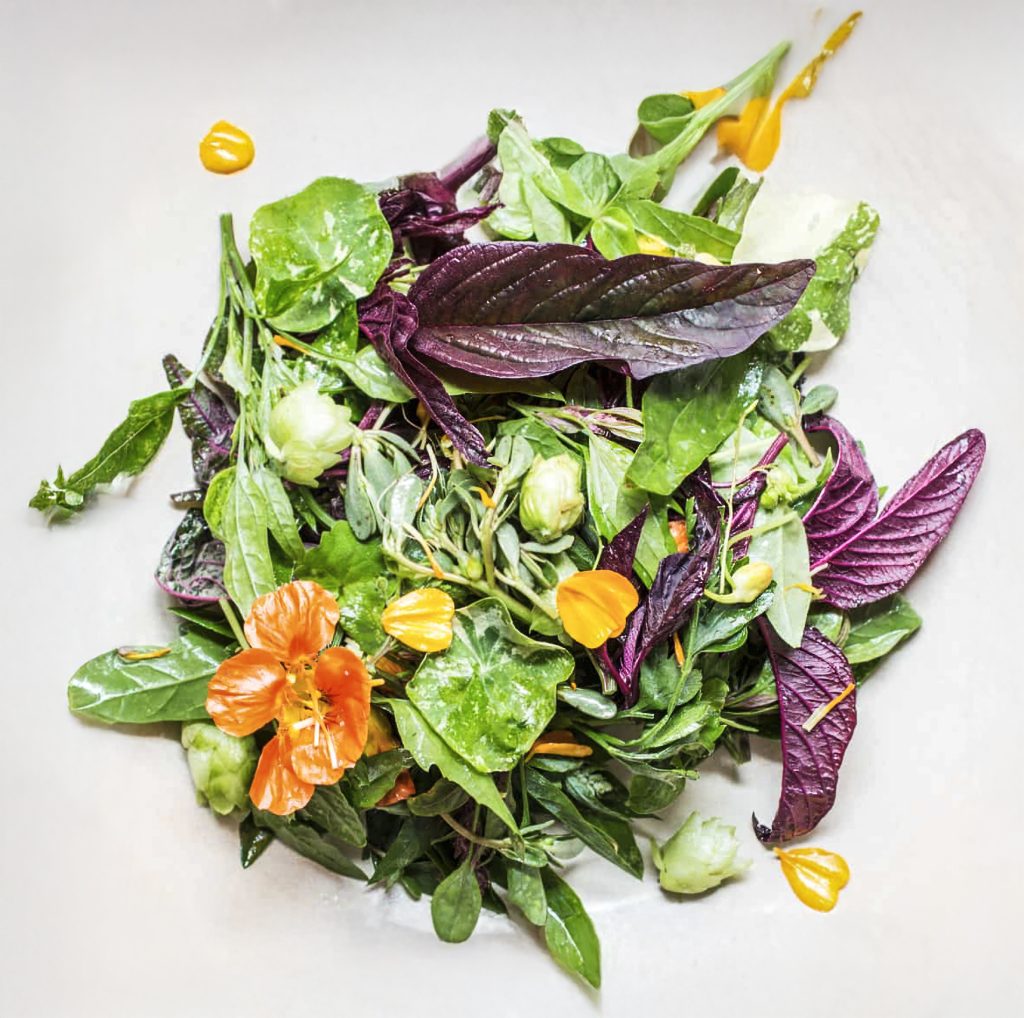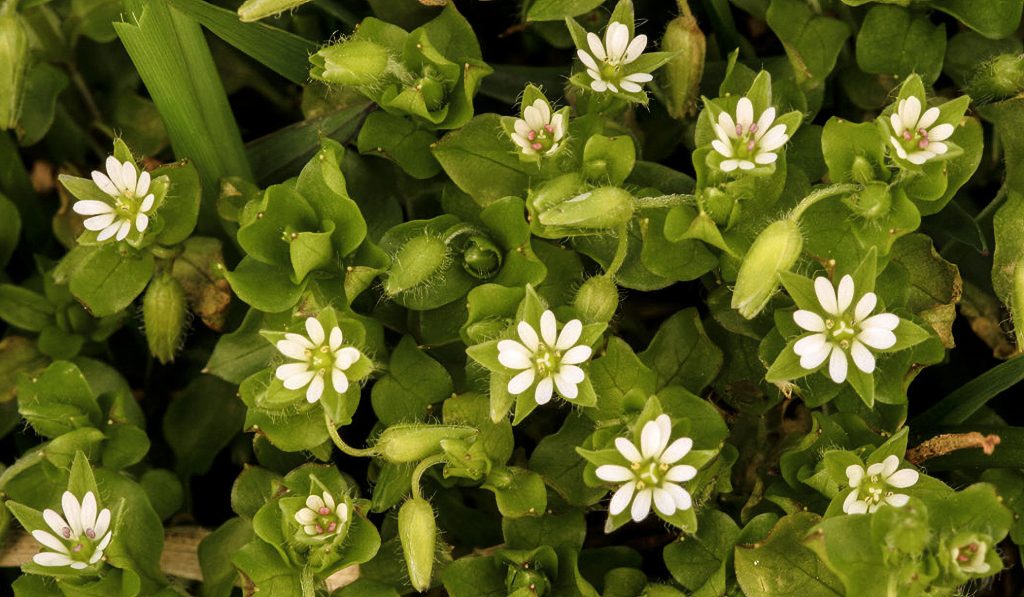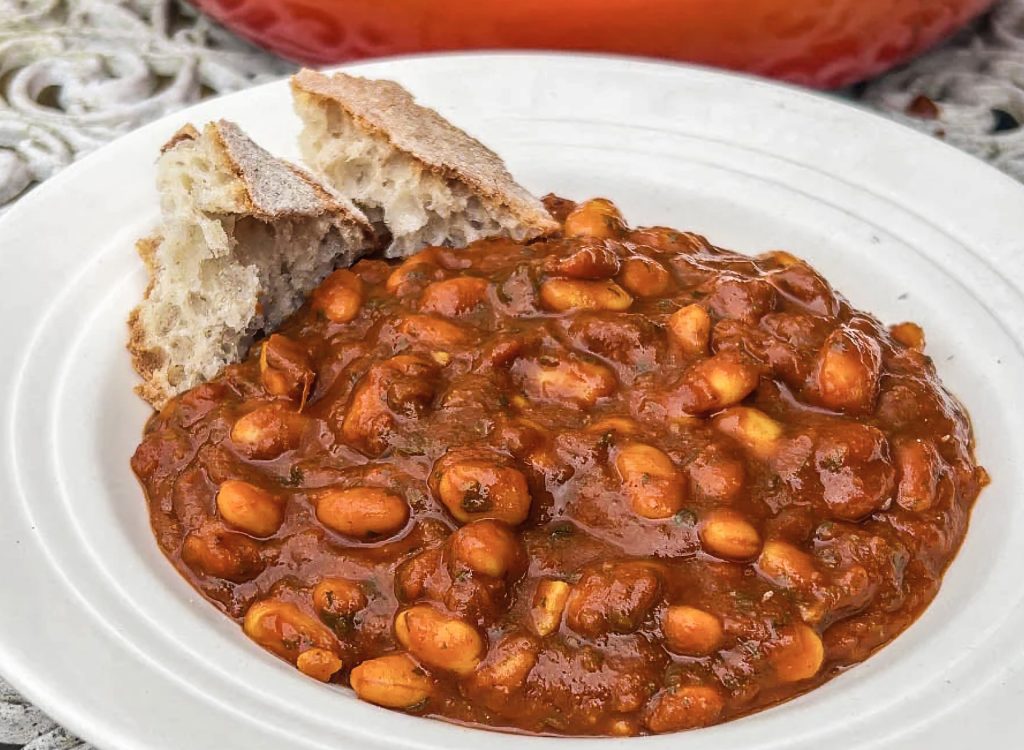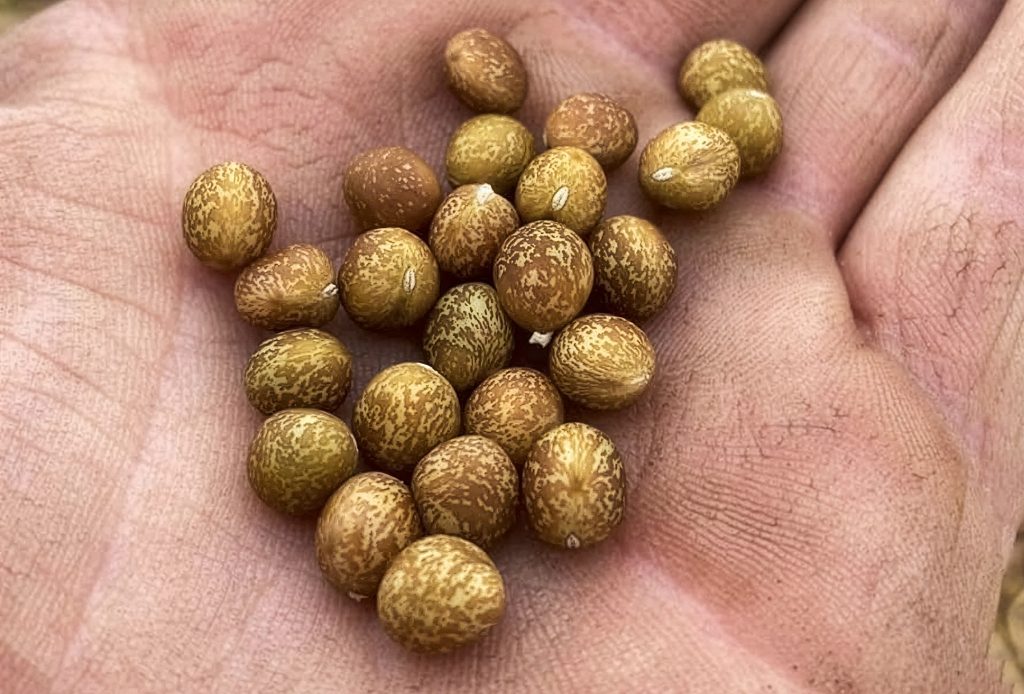How to use it: its tender leaves can go in salads with lemon and olive oil dressing. Blend into homemade pesto, or use to liven up just about any dish really. The tiny white, edible flowers make a pretty salad garnish.
What to look for: it’s a tough, creeping annual common throughout the UK on waste ground and in gardens. It’s abundant throughout the year from spring to late autumn. Look for its small, white, star-like white flowers. Look for it from February.
A fresh early-season foraged salad of chickweed is a quiet celebration of late winter’s generosity. Gathered in early February, when the land is still holding its breath, chickweed thrives low to the ground, tender and vibrant against the muted earth. Its delicate stems trail like green threads, dotted with small, star-shaped leaves and tiny white flowers that seem almost improbable at this time of year. Plucked fresh, it carries the scent of clean soil and cool air, a reminder that spring is already stirring beneath the frost.
On the palate, chickweed is mild and refreshing, with a gentle sweetness and a soft, grassy crunch that feels nourishing rather than bold. Tossed simply—perhaps with a squeeze of lemon, a drizzle of good olive oil, and a pinch of sea salt—it needs very little embellishment. Its freshness is the point. Each bite tastes alive, hydrating, and light, as if the plant has captured the season’s first promise of warmth.
As a vegan dish, this salad feels especially honest: no substitutions, no imitations, just plants as they are. Rich in vitamins and minerals, chickweed has long been valued as both food and gentle medicine, making it as healthy as it is humble. Served at the start of an early foraging trip, it grounds you in the moment. You’re eating what the land is offering right now, at its quietest and most resilient.
This salad isn’t about abundance or excess. It’s about attentiveness—kneeling close to the ground, noticing what’s growing, and welcoming the year back one fresh, green mouthful at a time.
- 1 cup chickweed leaves
- 1 bunch spring onions or 1 small red onion finely sliced
- 1 beet
- pinch of sea salt
- 3 tbsp organic coconut oil
- 2 tbsp wine vinegar
- ½ tsps mustard of choice
- Rinse and drain chickweed.
- Thinly cut spring onions.
- Grate a raw beet.
- Place in bowl.
- Combine the coconut oil, wine vinegar and mustard well then toss through salad.
- Sprinkle a pinch of salt over salt and enjoy.
















